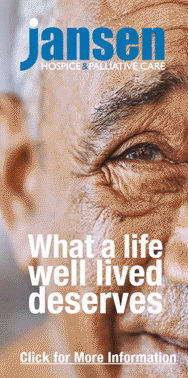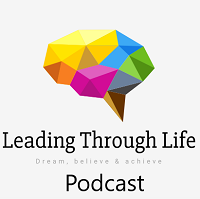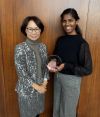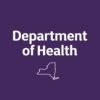Maintaining Good Mental Health One Year Into The Covid-19 Pandemic
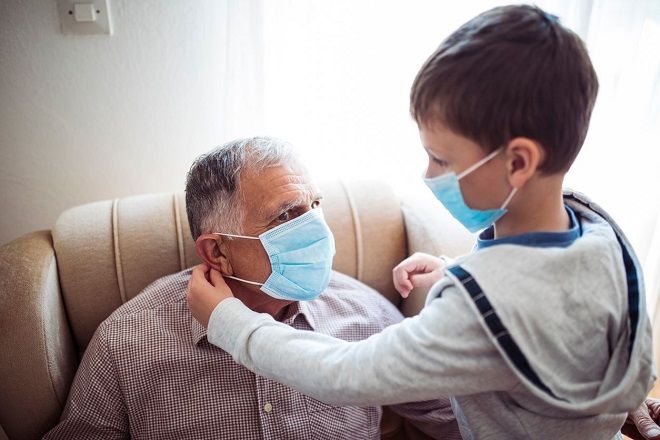
By Jennifer Naparstek Klein, Psy. D.
Mar. 24, 2021: We have now passed the one-year mark since we officially entered a worldwide pandemic—when life as we knew it shut down and the seriousness of the health crisis sank in for most people. The sudden and lasting changes in our lives put us into uncharted territory. In this country, we had not faced a pandemic since 1918; there was no literature about how to help each other.
As Victoria Azarenka, the champion tennis player who was unexpectedly ousted in the first round of the Australian Open, says in a February 9, 2021 espn.com article, “I don’t know how to prepare after two weeks’ quarantine to play a match in six or five days. I don’t have a blueprint of how to prepare. So, it’s all about, like, trying to figure it out. I did not figure it out, not this time.”
The feeling of not having a “blueprint” resonates with many of us. One can imagine how people in many fields, and in many life circumstances, are affected by both the novelty and shared challenge, especially when people depend on them. Doctors. Nurses. Administrators. Teachers. Plant managers. CEOs. Restaurant owners and food service workers. Mothers. Fathers. Adult children of elderly parents. First responders.
The list goes on—people who might find this time exceptionally difficult, without a road map for how to handle their responsibilities. The more one’s potential missteps negatively impact people’s lives, and the more they themselves are affected by Covid, the worse it can be for them psychologically.
Yet many people who are not performing roles that put them in direct stress are also suffering through this time... and their suffering is also valid and real.
When people go for a neurology consult, they are often prompted by symptoms that can be hard to pinpoint: frequent dizziness, the sensation of being outside of oneself, migraines with disorienting auras, difficulty focusing on a problem or situation, and uninhibited behavior. A variety of tests--CT scans, EEG’s, MRIs—will look for what we call “hard signs,” something we can detect or measure, structural or chemical changes.
However, often the signs are not visible or detectable, and we are left with “soft signs” as clues to what is going on: the client’s description of their experiences.
Similarly, during Covid, the stressors that can be characterized as hard signs, which are measurable and easy to label, are: illness, loss of a loved one, job loss or furlough, financial burden, cancellations of programs and life events, business shut-downs, school closures. These are all observable, notable, structural changes in people’s lives.
The soft signs are equally important and real: isolation, loneliness, anxiety, depression, irritability, argumentativeness, lack of motivation, lethargy, stagnation.
Richard Weissbourd, a senior lecturer at Harvard’s Graduate School of Education, is studying the concept of loneliness during the pandemic. In a February 23, 2021 Wall Street Journal article by Anne Marie Chaker he says, “I think it’s in our consciousness that the elderly are the ones who are lonely, but young people are lonely, too.” He speaks further about young adults and teens, and also mothers of young children, as statistically being the most lonely.
Over the past year, we at The Counseling Center have developed an awareness of how these various demographic groups are hurting. What seems clear to us is that the more people one lives with, or can pod with, the better, especially when those relationships are restorative.
Obviously, if one is podding with people with whom one has tense and conflicted relationships, that is not ideal. In some cases, it can be harmful, and at worst, physically dangerous. But in general, finding ways to be safely together is the antidote to the social distancing imposed upon us.
Teens and young adults tend to crave time with peers, not necessarily parents and siblings. This is developmentally appropriate, which is why some of the biggest breaches of Covid restrictions come from the teen/young adult demographic. Bronxville has experienced firsthand the consequences of large parties that spread the virus and shut down the school—both disruptive to the community. Not being around peers; not being able to date; feeling stuck inside, especially during the winter--these limitations are not normal, and young people suffer emotionally. Their distress is very real and valid.
When people do call for help, seeking to engage in therapy, they tend to feel more justified in doing so when they’ve experienced those hard signs--when they’ve been sick, or lost a job, or lost a loved one, etc. When it’s just one or a few of the soft signs, clients tend to qualify their experience and their reasons for seeking therapy by saying things like, “I know other people have it harder, but...blank, blank, blank,” or “I mean, I haven’t been sick or lost anyone, but I still feel...blank blank blank,” or “I know I’m lucky, but....blank, blank, blank.”
Clients seem to feel less entitled to their struggles when the world around them is in crisis. But mental health doesn’t work that way; there’s not necessarily a straightforward correlation between significance of stressor and level of suffering. The inability to engage in basic human activities...such as being around other people, hugging our elderly parents, or interacting with our adult or small children; the inability to exercise as usual, or dine in a restaurant, or plan vacations--all of these roadblocks blend to create distress. It is often how individuals respond that makes the difference.
It goes against our basic human instincts, and is anxiety-provoking, not to be present for each other. Each of us has had such moments—times when we couldn’t act according to our basic instincts, not show love as we wished or engaged with the world as we were accustomed.
Fran Leibowitz, the inimitable New York satirist, is quoted in The New Yorker (“Fran Leibowitz Is Never Leaving New York” by Michael Schulman, April 9, 2020), “I hate to cook. I find it incredibly tedious. Last night, I was peeling a cucumber and I was infuriated. Like, why am I peeling this cucumber? Why am I not in a restaurant, where they know how to peel a cucumber, and where I’m not doing it?...I have a lot of friends who love to cook, and every time one of them calls me I say, ‘Are you calling to invite me to dinner?’”
Fran makes us laugh by sounding almost superficial in her aggravation over peeling a cucumber, but what she points to is more serious--the vast and deep change in our routines, and what we depend on to feel well, and connected.
Another group for whom this pandemic has been challenging is divorced families. Having to agree on how to conduct oneself and one’s household is difficult enough. Conducting two households is that much tougher. Often people are divorced because seeing eye-to-eye isn't easy for them. They may be stylistically different, and may be combative in normal circumstances, so adding this unprecedented pandemic makes their situation deeply difficult.
People approach the pandemic differently. Some figure out how to travel, some hunker down at home. Some take calculated risks; others are risk averse. These differences can become points of contention in relationships, even between friends and extended family members. Therapists seek to help clients reconcile their own approach with the choices of others.
Finally, there is the issue of self-care, perhaps the most critical to consider during this year-long, and possibly longer, pandemic. If you’re a person who cares for yourself only after you've cared for others, a new way of looking at the situation might help.
What if you think of yourself as a delicate, valuable musical instrument, like a Stradivarius violin? This instrument requires mindful care to play well. It must be stored at the correct temperature, consistently tuned; the proper resin must be used on the strings and the bow kept in top condition. These details matter for the instrument to play well.
You, too, are a valuable instrument within your family and social networks. You need to play well.
We care for many things, and many people, and therefore we must practice mindful self-care. This is less easy during the pandemic because our usual go-to activities are not necessarily available. Gatherings where our intellectual and emotional needs are met, and we maintain our loving connections to people outside of our pod--that is all harder now.
At The Counseling Center, talking about self-care with clients was important before the pandemic; now it is essential. The discussion is also very personal since each person’s situation is unique. People might meet their self-care needs in similar ways, but often what works for one person does not work for another. Therapists must explore each situation in detail—and find what works for that particular client.
People are finding silver linings when they spend more time outdoors observing and feeling part of the natural world, when they share quality activities together within their pod, when they take up baking, try new forms of exercise, take on new projects, and volunteer to meet new needs related to the pandemic. Taking action helps us feel better, gives us agency, and inspires gratitude for these new opportunities. Self-care works best when it becomes on-going, part of our daily routine.
By seeking professional help when we need it, and by practicing self-care, we are doing our best to ensure that we survive this pandemic with good mental health, ready for whatever the future might bring.
Photo courtesy The Counseling Center
Editor's note: As a public service, MyhometownBronxville publishes articles from local institutions, officeholders, and individuals. MyhometownBronxville does not fact-check statements therein, and any opinions expressed do not necessarily reflect the thinking of its staff
Health Directory
Dr. Arpan Goel, MD
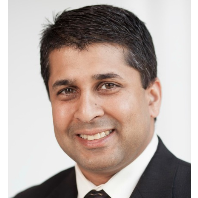
Maxwell Institute
Intensive and clinic-level outpatient chemical dependency treatment and education services.
92 Yonkers Ave
Tuckahoe, NY 10707
(914) 337-6033
777 White Plains Road
Scarsdale, NY
Phone: 914. 472. 9090
website
Lawrence Home Care of Westchester
670 White Plains Road
Scarsdale, NY 10707
(914) 787-6158
www.lawrencehomecare.org

Jansen Hospice and Palliative Care
NewYork-Presbyterian Westchester
NewYork-Presbyterian Westchester provides access to primary care physicians and specialists from ColumbiaDoctors, the faculty practice of Columbia University Irving Medical Center and NewYork-Presbyterian Medical Group Westchester.
The 288-bed facility is home to a cancer center, maternity center, breast health center, two cardiac catheterization labs, and a state-designated Stroke Center.
NYP Westchester provides advanced services such as minimally invasive surgery, state-of-the-art orthopedic care, and access to clinical trials.
55 Palmer Avenue in Bronxville
914-787-1000 Main

